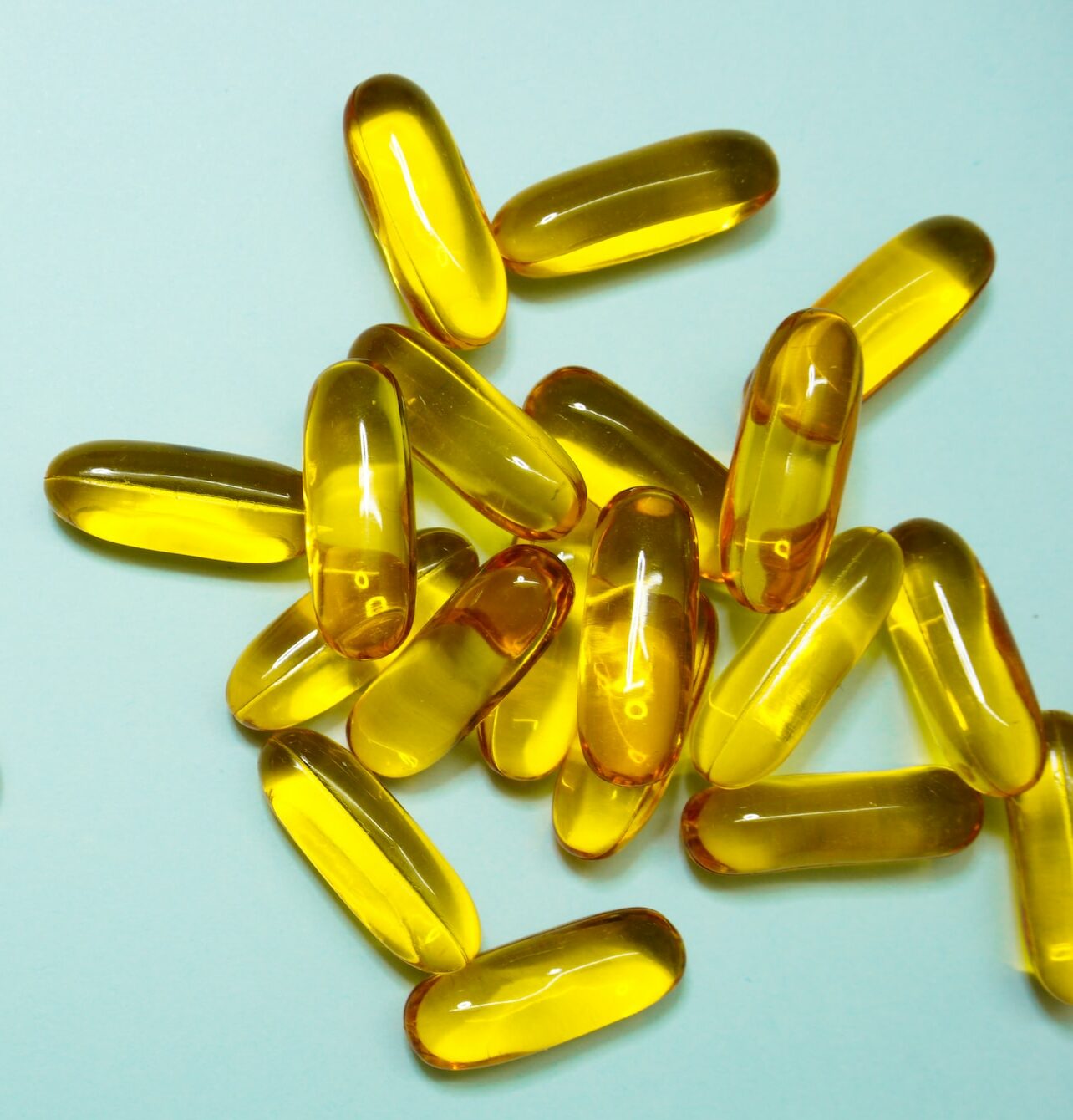What’s the Deal With Fats?
Fats are finally making a turnaround in the health field, going from being viewed as bad to being recognized for the many health properties that they have always had. Although there are “good” fats and “bad” fats, which I will get into, you must consume fats in your diet. A low-fat diet will be detrimental to your health in the long term. This notion that eating good quality fats, makes you unhealthy needs to be done away with for good. Healthy fats help to improve:
- Skin
- Immune System
- Hormones
- Nervous System
- GI System
- And many other aspects of your health directly or indirectly
Essential Vs. Non-essential
Essential fatty acids are the Omega 3 (Alpha-linolenic) and Omega 6 (Lenoleic Acid). These are both polyunsaturated fatty acids. They are considered essential because humans are unable to produce them and therefore, they need to be obtained through diet.
Non-essential fats can be produced in the body and therefore do not necessarily need to be consumed in the diet. These fats include Saturated fats (short, medium, and long chain) and monounsaturated or polyunsaturated fatty acids. Saturated fats are typically solid at room temperature, such as coconut oil, tallow, or butter. Mono- and Polyunsaturated fatty acids are typically liquid at room temp, such as olive oil, fish oils, and most vegetable/seed oils.
Saturated fatty acids have gotten a bad name in the past. Claiming they cause heart disease, clog your arteries, etc. This is false. Saturated fats are the most abundant form of fats found in the human body and help to give cell membranes their form and increase rigidity. These are also the preferred form of energy storage in the body.
Monounsaturated and polyunsaturated become rancid easier than saturated fats. These rancid fats interfere with your blood sugar regulation and create more inflammation in the body overall. Mono- and polyunsaturated fats become rancid from exposure to heat, oxygen, and light. The last one is why high-quality olive oil and fish oil supplements are always in a dark container. Processing and refining these oils cause the oils to go rancid and become hydrogenated oils. This is where trans fats come from which are often called hydrogenated and partially hydrogenated fats, as well as mono and diglycerides on food labels. There are many benefits to natural unsaturated fats, such as improving the fluidity of our cell membranes (there needs to be a good balance of unsaturated and saturated fats for a healthy cell membrane). These also help in many processes in the body, especially for energy production.
Omega-6 Vs. Omega-3
Omega 3 fatty acids are found in foods such as flaxseeds, chia seeds, hemp seeds, fish oils, and grass-fed beef and butter (Grain-fed cows produce mainly Omega 6 fats). For most people, these tend to have an anti-inflammatory effect. Alpha-linolenic Acid (ALA) is found in the seeds mentioned above and can be converted into Eicosapentaenoic acid (EPA) and Docosahexaenoic acid (DHA). EPA and DHA are found in cold water fish in varying ratios as well as some seaweed. The body can convert some dietary Omega 3’s into these but about 5% for EPA and 0.5% for DHA, so it is best to get some of these from diet. DHA is the most abundant fat in the brain and is extremely important for infant brain development.
Omega 6 fatty acids are found in seeds such as corn, sunflower, soybean, safflower, peanuts, etc… in the Linoleic acid form. This can then be converted into Gamma Linolenic acid (GLA) and Arachidonic acid (AA). These can be converted into pro- or anti-inflammatory mediators depending on other factors, such as NSAID intake, quality of the fats you eat, and the ratio of omega 6: omega 3 fats consumed.
Most people eating the standard American diet have a much higher ratio of omega 6: omega 3 fatty acids. This imbalance causes an increase in inflammatory mediators being produced. Some inflammation is good and necessary to improve healing, but this much is overkill and will have you feeling much more pain than necessary when tissues get damaged. The omega 6:3 ratio is something that is debated but in general, it should be around 4:1 where most Americans are closer to 20:1 or higher. To help correct this ratio begin looking at your food labels and find how many foods you eat with seed oils such as corn, soy, sunflower, safflower, canola, cottonseed, vegetable, etc. These oils are often very highly processed and rancid by the time they make it into your food. Any natural antioxidants from the original plants have long been destroyed and you only get the inflammatory aspects from these oils. The more you can decrease these oils in the food you eat while increasing wild-caught fish (NOT grain-fed/ farm-raised) and other omega 3’s the better you’ll begin feeling. It may benefit you to take a high-quality fish oil supplement for a period of time to help speed up this process. There was even a study done posted in Surgical Neurology, on people with low back pain, where over 80% of the subjects were satisfied with the natural painkilling effect of fish oil supplementation when compared to NSAID use. This helps to correct the cause rather than mask your symptoms and doesn’t come with all the side effects of chronic NSAID use.
Health Benefits of Eating Fats
Hopefully, you have a better understanding of fats in general now so let’s talk about why it matters. Fats are the densest energy source you can eat, being 9 calories/gram vs protein and carbs being 4/gram. This is why many personal trainers and doctors will advise people to avoid fatty foods when trying to lose weight. I would disagree with this for several reasons.
- Fats, being denser are also “burned” slower for energy, meaning you will have a more stable amount of energy throughout the day rather than the peaks and valleys that carbs produce.
- Fats are much more satiating than carbs, therefore you will likely eat fewer calories and feel fuller when you eat fats.
- Fats are essential for the absorption of several key vitamins (A, D, E, and K), as well as some minerals (Magnesium and Calcium to name a couple). These nutrients are extremely important for several aspects of your health, such as bone, skin, immune, GI, and hormones. Speaking of hormones…
- Fats are also a precursor to several hormones, such as testosterone, progesterone, and estrogen (can you say hormonal imbalance?). Low fat intake lowers these hormones and could lead to symptoms such as low libido, higher stress, low energy, PMS, dysmenorrhea, etc., etc…
- Fats are necessary to produce new cells as nearly every cell in your body is made of a wall of fatty acids known as a cell membrane.
- Fats insulate nerves with a myelin sheath. If these become dysfunctional such as in conditions like ALS, then you get improper nerve signals or signals that don’t make it to their target.
- Fats produce anti-inflammatory compounds.
This is not an all-inclusive list, but I think you get the point. I’m not saying to avoid all carbs/sugars and do a keto diet, but rather increase your fats and adjust your carbs based on your activity levels. Someone who is more active and does more high-intensity workouts likely need a higher amount of carbs than someone who is sedentary most of the time.
What to Eat and What Not to Eat
Any highly processed seed oils or fats should be avoided. The high temperatures and harsh chemicals used in processing these fats create trans fats and destroy the natural antioxidant factors present in nuts and seeds. You will always be better off going for raw, unrefined versions of whatever oil you go for. When cooking use saturated fats as these can hold up to higher temperatures than unsaturated. Coconut oil, grass-fed butter/ ghee, tallow, and avocado oil are great options as they have high smoke points. Olive oil can be used in lower temperatures and is a good option to put on food after it has been cooked. Canola, vegetable, corn, and soybean oils should be avoided in general. Seed oils such are sunflower, and safflower should be limited as they are omega-6 oils, so if you eat a lot of processed foods with these it will raise your Omega 6:3 ratio and increase your inflammation.
When it comes to food, go for fattier cuts of grass-fed beef and wild-caught fish, such as salmon. Raw nuts and seeds are okay just don’t go overboard. Avocados and olives are another good source of healthy fat. Avoid nut milk as this is going to be a high concentration of omega 6s.
Hopefully, this helps give you a better appreciation for fats and the many great things they do for us, next time you’re cooking add a little extra grass-fed butter, your health will thank you.















Leave a Reply
You must be logged in to post a comment.